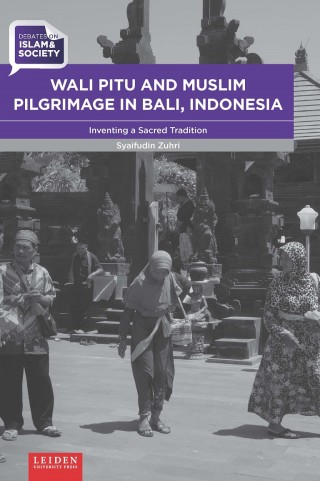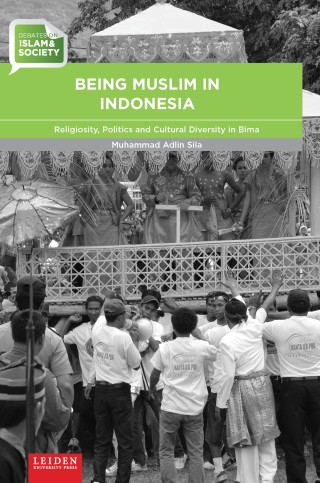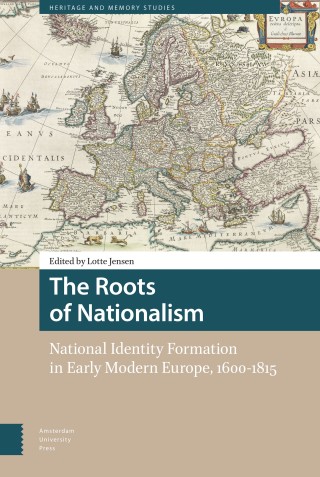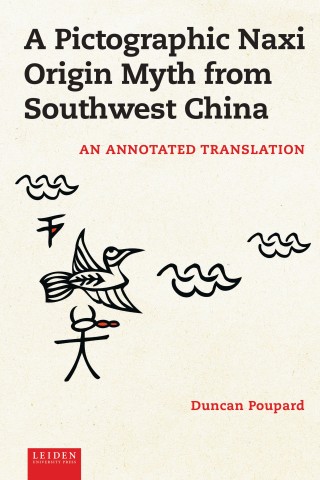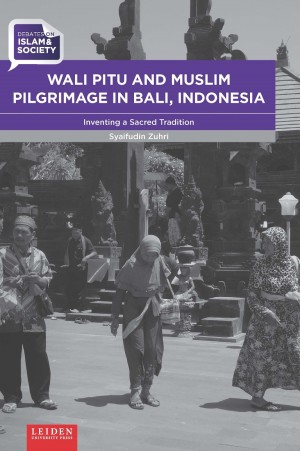
Syaifudin Zuhri
Wali Pitu and Muslim Pilgrimage in Bali, Indonesia
Inventing a Sacred Tradition
This ethnographic book deals with the emergence of the Wali Pitu (seven saints) tradition and Muslim pilgrimage in Bali, Indonesia. It touches upon the issues of translocal connectivity between Java and Bali, Islam-Hindu relationship, relations between Muslim groups, and questions of authority and authenticity of saint worship tradition. It offers a new perspective on Bali, seeing the island as a site of cultural motion straddling in between Islam and Hinduism with complexities of local figurations, and belongings of ‘Muslim Balinese’. The study also urges the intricate relationship between religion and tourism, between devotion and economy, and shows that the Wali Pitu tradition has facilitated the transgression of spatial and cultural boundaries.
Author
- Title
- Wali Pitu and Muslim Pilgrimage in Bali, Indonesia
- Subtitle
- Inventing a Sacred Tradition
- Author
- Syaifudin Zuhri
- Price
- € 107,99
- ISBN
- 9789400604315
- Format
- eBook PDF (Adobe DRM)
- Number of pages
- 314
- Language
- English
- Publication date
- 01 - 03 - 2022
- Dimensions
- 15.6 x 23.4 cm
- Series
- Debates on Islam & Society
- Categories
- Islam
- South East Asia
- Discipline
- Religion and Philosophy
- Also available as
- Hardback - € 108,00
Table of Contents
Acknowledgement
Note on Transliteration and Translation
Table of Contents
List of Figures
Maps
Introduction: Muslim Pilgrimage in Bali
PART 1: JAVA AND BALI IN THE INVENTION OF THE WALI PITU
1. Saint Veneration in Indonesia
2. The Invention of the Wali Pitu
3. Wisata Religi: Pilgrimage and Tourism in Bali
PART 2: QUESTIONS OF AUTHORITY AND AUTHENTICITY
4. Al-Qablal Wujud: Identity and Religious Economy
5. Keramat Gunung: Islam and Muslim Politics in Candikuning
6. Sharing the Sacred: Hybridity and Transgressing Boundaries
Conclusion: ‘Made in Bali, by Java’
Bibliography
Glossary and Abbreviation
Index
Acknowledgement
Note on Transliteration and Translation
Table of Contents
List of Figures
Maps
Introduction: Muslim Pilgrimage in Bali
PART 1: JAVA AND BALI IN THE INVENTION OF THE WALI PITU
1. Saint Veneration in Indonesia
2. The Invention of the Wali Pitu
3. Wisata Religi: Pilgrimage and Tourism in Bali
PART 2: QUESTIONS OF AUTHORITY AND AUTHENTICITY
4. Al-Qablal Wujud: Identity and Religious Economy
5. Keramat Gunung: Islam and Muslim Politics in Candikuning
6. Sharing the Sacred: Hybridity and Transgressing Boundaries
Conclusion: ‘Made in Bali, by Java’
Bibliography
Glossary and Abbreviation
Index
Reviews and Features
"This is a highly original study, very well executed, and an important contribution to the study of Indonesian Islam. A surprisingly mature work for what is obviously the author’s first book. It is very rich in new empirical information; the analysis is sophisticated and shows that the author is not only a perceptive observer but also well versed in the relevant literature. The manuscript has a clear and balanced structure; each chapter presents significant new insights. – Martin van Bruinessen, Utrecht University This mobile ethnography on the invention, experience and place-making of vernacularized Islamic worship in Bali offers a unique and compelling account of how a new sainthood tradition has manifested itself on the predominantly Hindu island of Bali. Through a transdisciplinary view from below and the comparative study of three sacred places, the importance of translocal spatial dynamics in the creation of Indonesian Islam is shown. As such this remarkable and insightful book by Syaifudin Zuhri deserves the attention of all those who are interested in Indonesian as well as in Islamic studies. – Vincent Houben, Humboldt Universität, Berlin This groundbreaking study challenges the common stereotype of the island of Bali as a Hindu enclave within the largest Muslim country in the world, Indonesia. Based on ethnographic fieldwork, the book focusses on the recently invented cult of seven Muslim saints in Bali, called the Wali Pitu, and the pilgrimage to their graves by mainly Javanese pilgrims, which has resulted in a lucrative business of religious tourism. Highly original, the book is a must-read for anyone interested in Islam in Indonesia, pilgrimage studies and Hindu-Muslim relations in Bali. – Nico J.G. Kaptein, Leiden University In exploring a recently established famous Islamic pilgrimage from Java to Bali, its origins, the Islamic law interpretations, opinions about the supernatural, and the social and economic implications, the book provides a rare insight into the life of ordinary Indonesians and abounds with well-chosen quotes from interviews. Package tours to the sacred sites are booked by Muslims of very modest means, eating at simple stalls and used to the most basic accommodations; a far cry from ‘Hajj plus tours’ for the rich, or the roads to some of the sites in Java, laid out to allow for Mercedes-chauffeured traffic. – Kees van Dijk, Leiden University "

